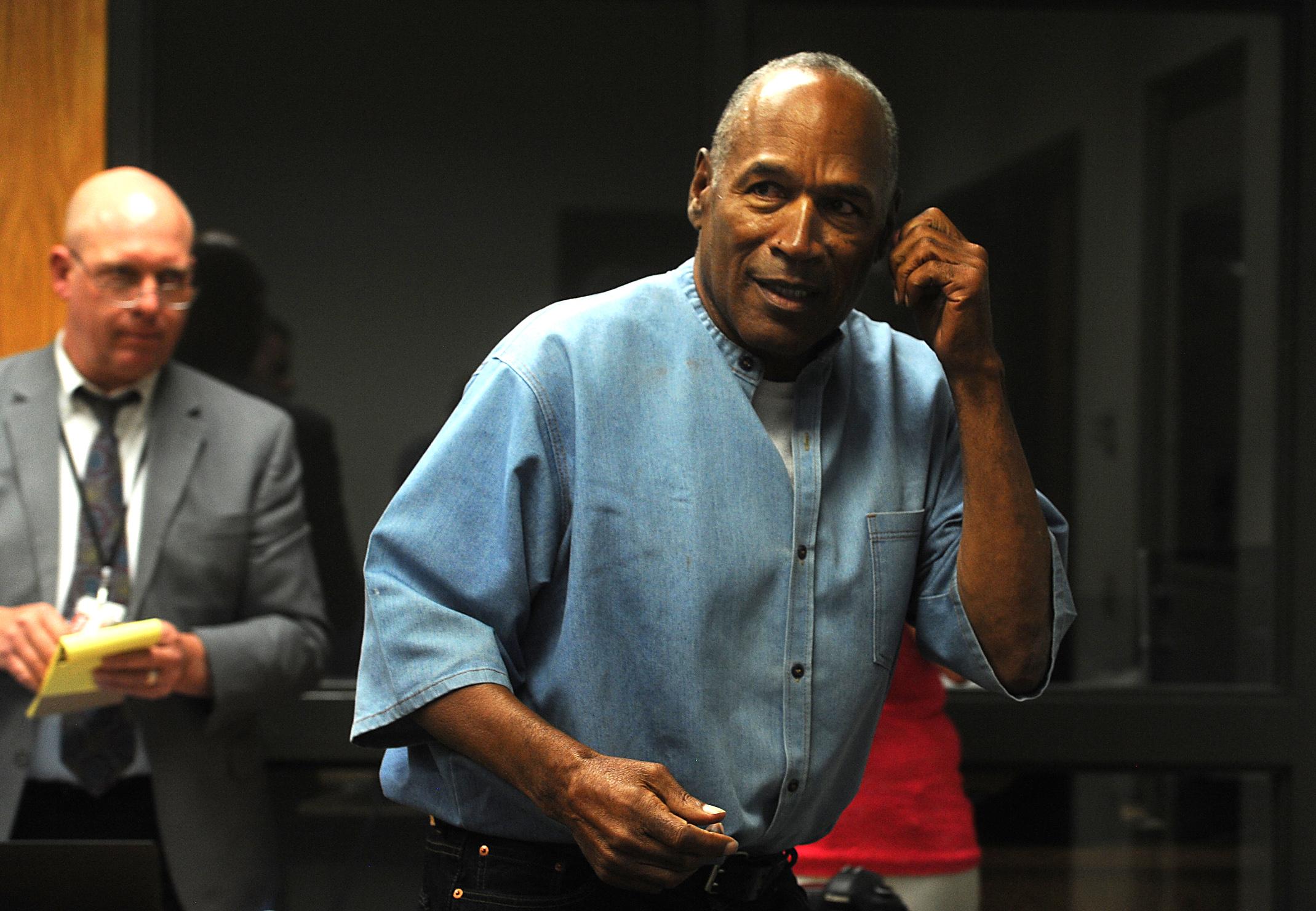Nevada politician proposes domestic violence law that could have kept OJ Simpson from getting out early
The law requires parole boards to take domestic violence convictions into account

Your support helps us to tell the story
From reproductive rights to climate change to Big Tech, The Independent is on the ground when the story is developing. Whether it's investigating the financials of Elon Musk's pro-Trump PAC or producing our latest documentary, 'The A Word', which shines a light on the American women fighting for reproductive rights, we know how important it is to parse out the facts from the messaging.
At such a critical moment in US history, we need reporters on the ground. Your donation allows us to keep sending journalists to speak to both sides of the story.
The Independent is trusted by Americans across the entire political spectrum. And unlike many other quality news outlets, we choose not to lock Americans out of our reporting and analysis with paywalls. We believe quality journalism should be available to everyone, paid for by those who can afford it.
Your support makes all the difference.A Nevada politician has proposed a domestic violence bill that might have kept former football star OJ Simpson behind bars.
Nevada Assemblywoman Lisa Krasner recently filed a bill that would require parole boards to take an inmate’s history of domestic violence into account when deciding whether or not to grant them an early release.
The bill was inspired by Mr Simpson, the controversial celebrity whose murder trial transfixed the nation in 1995. Mr Simpson was eventually acquitted in the murder of his ex-wife, Nicole Simpson, but was later sentenced to a maximum of 33 years for an unrelated robbery.
A Nevada parole board granted Mr Simpson’s request for early release in July of this year. Mr Simpson may be released as soon as this Sunday, after serving a total of nine years.
In granting Mr Simpson's early release, the parole board noted his lack of criminal convictions before the Las Vegas robbery. What they did not consider, however, was Mr Simpson’s 1989 conviction for misdemeanour battery.
The charges were filed by his then-wife, Ms Simpson, in California. An examiner for the parole board told the New York Times that the board was unaware of Mr Simpson’s prior conviction at the time of his parole hearing.
The conviction, the examiner said, “did not appear in the [National Crime Information Center] history”.
In the wake of this news, Gloria Allred, a prominent women’s rights attorney who represented Ms Simpson's family during the murder trial, broached the issue with Ms Krasner.
“As I watched the hearing and heard the board conclude that Mr. Simpson was ‘at low risk to reoffend’ and should be granted parole, I immediately felt that the law in Nevada should be changed,” Ms Allred said at a press conference.
The attorney said she sought out Ms Krasner because of her history of working on victims' rights. Ms Krasner has previously authored a bill to extend the statute of limitations in certain child abuse cases.
Ms Krasner’s bill would require parole boards to take an inmate’s past domestic violence convictions into account. It would also require boards to consider whether the inmate has been found responsible for wrongful death in a civil case. (Mr Simpson was found responsible for Ms Simpson’s murder in a 1997 civil case.)
Finally, the bill would require all inmates who come before a parole board to testify under penalty of perjury. This step, according to Ms Krasner, would prevent inmates from lying about a prior conviction.
“A person who commits an act of domestic violence upon another person should be held accountable for their actions by legal consequences,” Ms Krasner said at the press conference.
She added: “We must never forget or minimise the hardship a victim experiences.”
Join our commenting forum
Join thought-provoking conversations, follow other Independent readers and see their replies
Comments